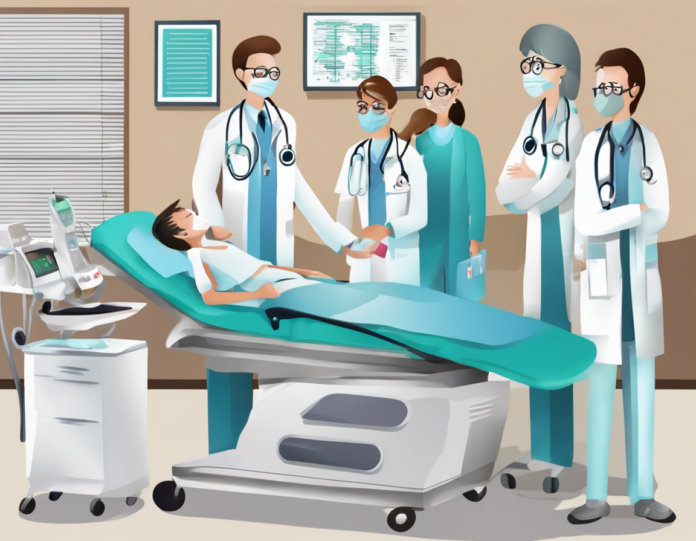When it comes to medical terminology, OPD is a common acronym that stands for “Outpatient Department.” The OPD is a crucial component of any healthcare facility, providing a range of services to patients who do not require overnight stay or admission to the hospital. In this article, we will delve deep into the significance of OPD, the services it offers, and its role in the overall healthcare system.
What is an OPD?
The Outpatient Department (OPD) is a designated area within a hospital or clinic where patients receive diagnosis, treatment, and care without being admitted for an overnight stay. This department is vital for managing a large number of patients who have minor ailments or require follow-up consultations. OPDs are staffed by a team of healthcare professionals, including doctors, nurses, technicians, and administrative staff, who work together to ensure seamless patient care.
Services Offered in OPD
- Consultations: Patients can consult specialists or general physicians for various health concerns, including routine check-ups, illnesses, or chronic conditions.
- Diagnostic Services: OPDs offer a range of diagnostic tests such as blood tests, X-rays, ultrasounds, ECG, and more to aid in the diagnosis and treatment of patients.
- Minor Procedures: Some OPDs conduct minor procedures like wound dressing, vaccinations, nebulization, and suturing for patients requiring immediate treatment.
- Counseling: Patients may also receive counseling on lifestyle modifications, medications, and other aspects of their health and well-being.
- Follow-up Care: OPDs are crucial for providing follow-up care to patients who have been discharged from the hospital or require ongoing monitoring of their condition.
Importance of OPD in Healthcare
OPDs play a significant role in the healthcare system for several reasons:
- Accessibility: OPDs make healthcare services more accessible to a larger population, ensuring that people can seek medical assistance without the need for hospitalization.
- Efficiency: By segregating outpatient services from inpatient care, hospitals can manage patient flow more efficiently, reducing waiting times and ensuring timely treatment.
- Cost-Effective: Outpatient care is generally more cost-effective than inpatient care, making it an affordable option for patients with limited resources.
- Preventive Care: OPDs focus on preventive care, early detection of diseases, and management of chronic conditions, contributing to overall public health and well-being.
- Continuity of Care: Patients can receive continued care and follow-up consultations in OPDs, promoting continuity in treatment and better health outcomes.
Difference Between OPD and IPD
While OPD refers to outpatient services, IPD stands for “Inpatient Department” where patients are admitted for overnight stay or longer durations for intensive treatment and care. The distinction between OPD and IPD is crucial in healthcare settings to ensure that patients receive appropriate levels of care based on their medical needs.
Challenges Faced by OPDs
Despite their significance, OPDs encounter several challenges that impact service delivery and patient care:
- Overcrowding: OPDs often experience overcrowding due to a high volume of patients seeking care, leading to longer wait times and reduced quality of services.
- Resource Constraints: Limited resources, including medical staff, equipment, and infrastructure, can hinder the efficiency and effectiveness of OPDs.
- Patient Compliance: Ensuring patient compliance with follow-up appointments, medications, and lifestyle modifications poses a challenge for OPDs in managing chronic conditions.
- Administrative Burden: OPDs must handle a significant administrative workload, including patient registrations, record-keeping, and appointment scheduling, which can strain resources.
- Quality of Care: Maintaining high-quality care in OPDs amidst heavy patient footfall and time constraints remains a constant challenge for healthcare providers.
FAQs about OPD:
1. What is the purpose of an OPD?
The primary purpose of an Outpatient Department (OPD) is to provide medical consultations, diagnostic services, minor procedures, and follow-up care to patients who do not require hospitalization.
2. How do I book an appointment in an OPD?
Patients can typically book OPD appointments by calling the hospital or clinic directly, visiting their website for online appointment booking, or using healthcare apps that facilitate appointment scheduling.
3. Do I need a referral to visit an OPD?
While referrals are not always necessary, some healthcare providers may require a referral from a general physician or another specialist for certain consultations or services in the OPD.
4. Are OPD services covered by health insurance?
Many health insurance plans cover OPD consultations, diagnostic tests, and procedures, but coverage varies depending on the insurance policy. It is advisable to check with your insurance provider for details.
5. Can I get emergency care in an OPD?
OPDs are typically equipped to handle minor emergencies and urgent care situations; however, for critical emergencies requiring immediate attention, it is advisable to visit the Emergency Department (ER) or call emergency services.
In conclusion, the OPD plays a crucial role in providing accessible, cost-effective, and quality healthcare services to a diverse patient population. By offering a range of medical consultations, diagnostics, procedures, and follow-up care, OPDs contribute significantly to the overall well-being of individuals and communities. Despite facing challenges, OPDs remain an essential component of the healthcare system, ensuring that patients receive timely and appropriate care for their health needs.

